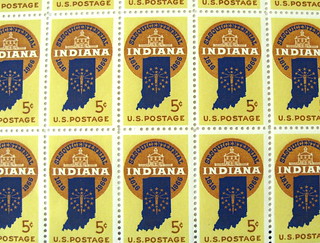5 for Friday – Links, Stories & Posts for Your Weekend
June 29th, 2012 by

• Google+: A Year of Missed Opportunities – Mashable.com
Google+, the proposed “Facebook killer,” is turning out to be more Elmer Fudd than Brutus. Our blog noted the early successes of Google+ over a year ago, citing its sleek design and seamless integration of Google profiles and contacts. Yet Facebook’s de facto archenemy stumbled at the start gate, disallowing aliases and stalling for four months before allowing brands and news platforms to set up profiles. The numbers are startling: users spent an average of 3.3 minutes on G+ in January, compared to seven hours on Facebook. In the last year Facebook has grown from 700 million users to 900 million, a growth that exceeds the entirety of the G+ population. For small businesses interested in the clean, professional, design of G+, note that historically Google has added layers of complexity to augment their online platforms. With a growing sentiment that the Facebook juggernaut has shed its user-friendly coat, the question is: can Google take advantage of the sea change?
• Understanding Google Places & Local Search – Developing Knowledge about Local Search – Blumenthals.com
On May 30th, Google Places was replaced with Google+ Local. With 97% of consumers searching for local businesses online, having a presence on Google Maps is a necessity — if you can figure it out. MapMaker effectively took the burden of mapping the world off the folks at Google and placed it on savvy cartographers and small business owners alike. With categories functioning like keywords, a business owner can enhance their presence on Maps and keep the information up to date—especially helpful for start-ups.
Though with Google Mapmaker lacking a comprehensive set of categories, small business owners want to know: “What is the best practice for adding categories in MapMaker?” The short answer is that avoiding keyword spam, using five standard categories (like ‘Gas Station’ if you’re a gas station), and editing the categories directly on the Place page will help create more cohesion between the two pages. As Mike Blumenthal delves into detail about the ins and outs of categories, one begins to see why Google democratized the effort. A complex list of practices to set yourself apart from the competition—if you’re willing to learn.
• Facebook Email Fiasco: 900 Million+ Profile Updates Without Permission – SearchEngineJournal.com
Can Facebook do anything right, or are we just too invested? While most Facebook users consider their inbox to be an extension of the chat feature, it’s actually a collection point for your Facebook email (yes, you have one): facebook.url@facebook.com. Check your company’s Facebook page. For if you wish to generate traffic to your business email from the email address displayed on your profile, note that the address displayed on your timeline is no longer your business email. This change has given ammunition to Facebook critics who note that changes made for “our privacy and security” seem to be made while violating privacy and security. To display your “real” email address again, navigate to your profile, click “Update Info,” then “Contact Info,” and “Edit,” then customize your email address options.
• Hitwise: Bing Has Chipped Away 5 Percent Of Google’s Search Share Over Past Year – SearchEngineLand.com
Though “Bing it” is still an unlikely response to the big questions (Dude, what movie is that guy from?) of everyday life, don’t think Windows’ “decision engine” is down for the count. Launched in June 2009 as a competitor (or, depending on your point of view, goat in the T-Rex pen) to Google, Bing has not yet undertaken the search engine behemoth. In the last 12 months, though, Bing has taken 5% of Google’s market share. That’s news. A bigger story, perhaps, is that Google has declined by 5%. The “sick man” of search engines, Yahoo, has dropped for nine consecutive months. With rumors of internal struggle and the floundering of Google+, the question is: has Google stretched itself too thin?
• Google’s Developer Dilemma: Open Up Google+ Or Hold On To ‘Something Special’? – MarketingLand.com
In related news, El Goog is displaying a stubborn side. During a “fireside” chat with developers at the 2012 Google I/O conference, several members of the Google+ team explained that their “tentative” approach to opening up Google+ to full read-write API is a result of “something special” and “magical” happening on Google+. As of yet, no news on what that means. Google’s desire to shelter their baby could pay off in the long run. After all, who got anywhere trying to satisfy everyone? The Google team reports that API access would result in spamming. If Google+ plans to remain inside the cocoon too long, though, developers and businesses alike may become frustrated. The conference was not all bad new for developers, however; Google hinted that big developments are in the team’s plans, such as adding Google+ comments to the API and making vanity URLs available to all users.
